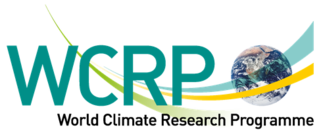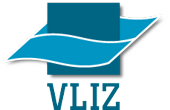
Plankton are the diverse collection of organisms found in water that are unable to propel themselves against a current. The individual organisms constituting plankton are called plankters. In the ocean, they provide a crucial source of food to many small and large aquatic organisms, such as bivalves, fish and whales.

The World Climate Research Programme (WCRP) is an international programme that helps to coordinate global climate research. The WCRP was established in 1980, under the joint sponsorship of the World Meteorological Organization (WMO) and the International Council for Science (ICSU), and has also been sponsored by the Intergovernmental Oceanographic Commission (IOC) of UNESCO since 1993.
The Intergovernmental Oceanographic Commission of UNESCO (IOC/UNESCO) was established by resolution 2.31 adopted by the General Conference of UNESCO. It first met in Paris at Unesco Headquarters from 19 to 27 October 1961. Initially, 40 States became members of the Commission. The IOC assists governments to address their individual and collective ocean and coastal management needs, through the sharing of knowledge, information and technology as well as through the co-ordination of programs and building capacity in ocean and coastal research, observations and services.
The National Oceanographic Data Center (NODC) was one of the national environmental data centers operated by the National Oceanic and Atmospheric Administration (NOAA) of the U.S. Department of Commerce. The main NODC facility was located in Silver Spring, Maryland and was made up of five divisions. The NODC also had field offices collocated with major government or academic oceanographic laboratories in Stennis Space Center, MS; Miami, FL; La Jolla, San Diego, California; Seattle, WA; Austin, Texas; Charleston, South Carolina; Norfolk, Virginia; and Honolulu, Hawaii. In 2015, NODC was merged with the National Climatic Data Center and the National Geophysical Data Center into the National Centers for Environmental Information (NCEI).

The Global Temperature and Salinity Profile Programme (GTSPP) is a cooperative international project that seeks to develop and maintain a global ocean Temperature-Salinity resource with up-to-date and high quality data.

A weather ship, or ocean station vessel, was a ship stationed in the ocean for surface and upper air meteorological observations for use in weather forecasting. They were primarily located in the north Atlantic and north Pacific oceans, reporting via radio. The vessels aided in search and rescue operations, supported transatlantic flights, acted as research platforms for oceanographers, monitored marine pollution, and aided weather forecasting by weather forecasters and in computerized atmospheric models. Research vessels remain heavily used in oceanography, including physical oceanography and the integration of meteorological and climatological data in Earth system science.
The World Ocean Database Project, or WOD, is a project established by the Intergovernmental Oceanographic Commission (IOC). The project leader is Sydney Levitus who is director of the International Council for Science (ICSU) World Data Center (WDC) for Oceanography, Silver Spring. In recognition of the success of the IOC Global Oceanographic Data Archaeological and Rescue Project, a proposal was presented at the 16th Session of the Committee on International Oceanographic Data and Information Exchange (IODE), which was held in Lisbon, Portugal, in October–November 2000, to establish the World Ocean Database Project. This project is intended to stimulate international exchange of modern oceanographic data and encourage the development of regional oceanographic databases as well as the implementation of regional quality control procedures. This new Project was endorsed by the IODE at the conclusion of the Portugal meeting, and the IOC subsequently approved this project in June 2001.
Data archaeology refers to the art and science of recovering computer data encoded and/or encrypted in now obsolete media or formats. Data archaeology can also refer to recovering information from damaged electronic formats after natural disasters or human error.

The Index to Marine & Lacustrine Geological Samples is a collaboration between twenty institutions and agencies that operate geological sample repositories. The purpose of the database is to help researchers locate sea floor and lakebed cores, grabs, dredges, and drill samples in their collections.
Agricultural Information Management Standards, abbreviated to AIMS is a space for accessing and discussing agricultural information management standards, tools and methodologies connecting information workers worldwide to build a global community of practice. Information management standards, tools and good practices can be found on AIMS:
The World Ocean Circulation Experiment (WOCE) was a component of the international World Climate Research Program, and aimed to establish the role of the World Ocean in the Earth's climate system. WOCE's field phase ran between 1990 and 1998, and was followed by an analysis and modeling phase that ran until 2002. When the WOCE was conceived, there were three main motivations for its creation. The first of these is the inadequate coverage of the World Ocean, specifically in the Southern Hemisphere. Data was also much more sparse during the winter months than the summer months, and there was—and still to some extent—a critical need for data covering all seasons. Secondly, the data that did exist was not initially collected for studying ocean circulation and was not well suited for model comparison. Lastly, there were concerns involving the accuracy and reliability of some measurements. The WOCE was meant to address these problems by providing new data collected in ways designed to “meet the needs of global circulation models for climate prediction.”
The World Ocean Atlas (WOA) is a data product of the Ocean Climate Laboratory of the National Oceanographic Data Center (U.S.). The WOA consists of a climatology of fields of in situ ocean properties for the World Ocean. It was first produced in 1994, with later editions at roughly four year intervals in 1998, 2001, 2005, 2009, and 2013.
The vast scale of the oceans, the difficulty and expense of making measurements due to the hostility of the environment and the internationality of the marine environment has led to a culture of data sharing in the oceanographic data community. As far back as 1961 UNESCO's Intergovernmental Oceanographic Commission (IOC) set up IODE to enhance marine research, exploitation and development by facilitating the exchange of oceanographic data and information.

The British Oceanographic Data Centre (BODC) is a national facility for looking after and distributing data about the marine environment. BODC is the designated marine science data centre for the UK and part of the National Oceanography Centre (NOC) — primarily at its facility in Liverpool, with small number of its staff in Southampton. The centre provides a resource for science, education and industry, as well as the general public.
The Hawaii Ocean Time-series (HOT) program is a long-term oceanographic study based at the University of Hawaii at Manoa. In 2015, the American Society for Microbiology designated the HOT Program's field site Station ALOHA a "Milestone in Microbiology", for playing "a key role in defining the discipline of microbial oceanography and educating the public about the vital role of marine microbes in global ecosystems."

The Flanders Marine Institute provides a focal point for marine scientific research in Flanders, northern Belgium.
The National Centers for Environmental Information (NCEI), an agency of the United States government, manages one of the world's largest archives of atmospheric, coastal, geophysical, and oceanic data, containing information that ranges from the surface of the sun to Earth's core, and from ancient tree ring and ice core records to near-real-time satellite images.

Alan Reece Longhurst is a British-born Canadian oceanographer who invented the Longhurst-Hardy Plankton Recorder, and is widely known for his contributions to the primary scientific literature, together with his numerous monographs, most notably the "Ecological Geography of the Sea". He led an effort that produced the first estimate of global primary production in the oceans using satellite imagery, and also quantified vertical carbon flux through the planktonic ecosystem via the biological pump. More recently, he has offered a number of critical reviews of several aspects of fishery management science and climate change science.

The Ocean Biodiversity Information System (OBIS), formerly Ocean Biogeographic Information System, is a web-based access point to information about the distribution and abundance of living species in the ocean. It was developed as the information management component of the ten year Census of Marine Life (CoML) (2001-2010), but is not limited to CoML-derived data, and aims to provide an integrated view of all marine biodiversity data that may be made available to it on an open access basis by respective data custodians. According to its web site as at July 2018, OBIS "is a global open-access data and information clearing-house on marine biodiversity for science, conservation and sustainable development." 8 specific objectives are listed in the OBIS site, of which the leading item is to "Provide [the] world's largest scientific knowledge base on the diversity, distribution and abundance of all marine organisms in an integrated and standardized format".